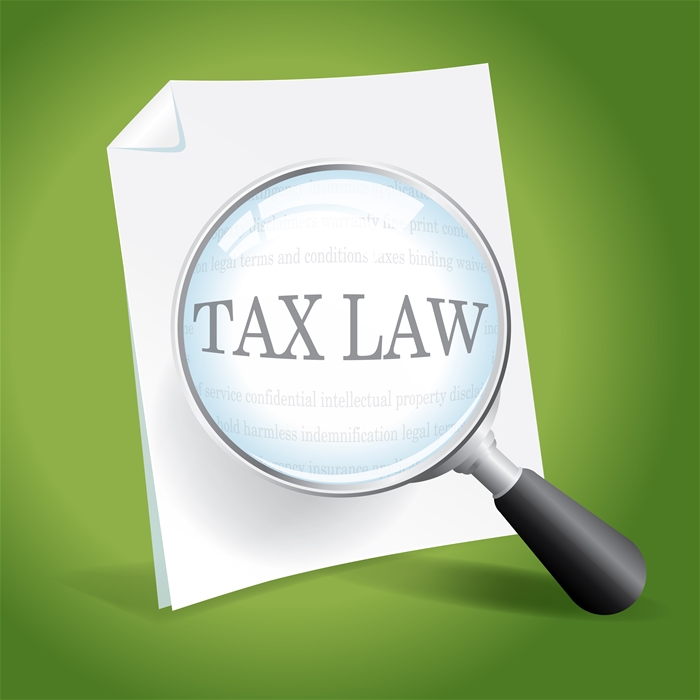Starting and running a business can be a complex endeavor, with so many aspects to manage and consider. Among the many important aspects of running a successful business, taxation is one that often causes confusion and headache for many business owners. The maze of business tax laws can be difficult to navigate, often leaving entrepreneurs feeling overwhelmed and unsure of how to proceed. In this guide, we hope to unravel the labyrinth of business tax laws and provide you with a comprehensive understanding of the key concepts and guidelines to ensure compliance and minimize your tax burden. Whether you are just starting out or have been in business for years, this guide will serve as a valuable resource in helping you navigate the intricacies of business tax law. From understanding tax classifications and types of business taxes to implementing effective tax planning strategies, we will cover it all. So, let’s embark on this journey together and demystify the world of business tax law, step by step.
Understanding Business Tax Obligations
Starting and running a successful business requires more than just coming up with a great idea and executing it flawlessly. Business owners also have the responsibility of understanding and fulfilling their tax obligations. Navigating these obligations can seem like a labyrinth at times, but with the right knowledge, you can successfully navigate the complex world of business tax law.
-
Knowing your tax classification is crucial. Different types of businesses have different tax requirements. Whether you’re a sole proprietor, partnership, corporation, or LLC, each classification has its own set of rules and regulations regarding taxes. It’s important to understand the specific requirements for your business entity to ensure compliance and avoid penalties.
-
Familiarize yourself with tax filing deadlines. As a business owner, you’ll be required to file various tax returns throughout the year. This includes filing income tax returns, payroll tax returns, sales tax returns, and more. Each type of tax return has its own deadline, so it’s crucial to stay organized and meet these deadlines to avoid late filing penalties.
-
Keep meticulous records and maintain accurate bookkeeping. Sound financial recordkeeping is essential for proper tax compliance. This includes keeping track of all business income, expenses, and deductions. By maintaining accurate and organized records, you’ll have the documentation you need to support your tax filings, respond to any audits or inquiries, and ensure your business is in good standing with tax authorities.
Understanding your business tax obligations is a crucial aspect of running a successful business. By knowing your tax classification, staying aware of tax filing deadlines, and maintaining accurate financial records, you can navigate the complexities of business tax law with confidence and ensure compliance with the ever-changing regulations.
Navigating Common Business Tax Deductions
When it comes to running a business, understanding and making the most of tax deductions is crucial. By taking advantage of allowable deductions, you can potentially reduce your taxable income and save on your tax bill. Here are some common business tax deductions to navigate:
-
Operating Expenses: Many everyday expenses related to running your business can be deducted. This includes costs such as office rent, utilities, and insurance. Additionally, expenses like internet and phone bills, office supplies, and even postage can often be claimed as deductions.
-
Employee Compensation: Wages and salaries paid to employees can usually be deducted. Your business can include employee salaries, bonuses, commissions, and other benefits as deductible expenses. Keep accurate records of all payroll expenditures to ensure you can substantiate your deductions.
-
Business Travel: If your business requires you to travel, you may be eligible for deductions on expenses such as airfare, hotel stays, meals, and transportation. However, it’s important to note that personal expenses during business trips are not deductible.
Remember, keeping thorough and organized records of your business expenses is essential when navigating tax deductions. Consult with a tax professional or utilize reliable accounting software to ensure you’re maximizing your deductions without running afoul of tax laws. By understanding and properly utilizing common business tax deductions, you can potentially lessen your tax burden and improve your overall financial position.
Strategies for Ensuring Compliance with Business Tax Laws
When it comes to navigating the complexities of business tax laws, it is vital for companies to prioritize compliance. Failing to do so can result in costly fines and penalties that could severely impact the financial stability and reputation of a business. To help you stay on the right side of the law, here are some effective strategies for ensuring compliance with business tax laws.
Firstly, it is crucial for businesses to maintain accurate and up-to-date financial records. Keep meticulous track of all income, expenses, and deductions related to your business activities. By organizing your financial data in a systematic manner, you will be better equipped to file your taxes correctly and provide any necessary documentation to tax authorities, if required. Adopting modern accounting software or hiring a professional bookkeeper can greatly facilitate this process.
Secondly, staying informed about changes in tax laws and regulations is essential for compliance. Tax laws are subject to frequent updates, and failing to keep up with these changes can lead to unintentional non-compliance. Regularly consult reputable tax resources, stay informed about new legislation, and consider engaging the services of a knowledgeable tax professional who can provide guidance tailored to your business needs.
Lastly, consider conducting periodic internal audits to ensure compliance with business tax laws. This involves reviewing your financial records, processes, and procedures to identify any potential areas of non-compliance or inefficiency. By proactively identifying and addressing any issues, you can mitigate risks and maintain a strong compliance framework within your organization.
By implementing these strategies, businesses can navigate the labyrinth of business tax laws with confidence and avoid unnecessary complications. Remember, compliance is not only a legal obligation but also a crucial aspect of maintaining the financial health and sustainability of your business.




